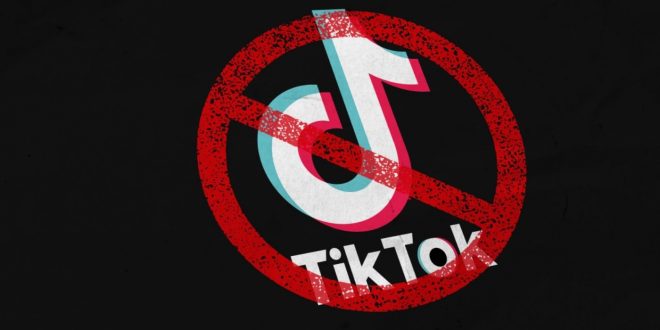Days after the United Kingdom outlawed TikTok on official devices, New Zealand has followed suit by outlawing the short video app on parliamentary gadgets. The decision was made in response to rising security worries about ByteDance, the owner of TikTok, giving user data to the Chinese authorities.
By the end of March, the app would be blocked on any device with access to the network of the parliament, according to the nation’s authorities, who cited cybersecurity concerns. The government is making an exemption, though, for those who may require the app to “perform their democratic duties.” What that might signify was not made clear.
Rafael Gonzalez-Montero, the chief executive of the Parliamentary Service, told Reuters via email that the administration made the choice after conferring with international authorities and cybersecurity specialists.
The risks are not acceptable in the current New Zealand parliamentary context, the service has assessed based on this evidence, he added.
TikTok will be withdrawn from all devices with access to the parliamentary network, according to the recommendation of our cyber security specialists, and the Parliamentary Service has informed members and staff.
In response, TikTok said that neither the company nor the ban were discussed with them.
“We regret the decision to remove the TikTok app from devices under the control of the Parliamentary Service. Without consulting or notifying TikTok, this decision was made. There is no evidence to suggest that TikTok puts New Zealanders’ security in danger, and TikTok places the utmost focus on data protection. We think it’s critical that decisions are grounded in reality and not false information, a TikTok representative said in a statement to TechCrunch.
The app says that it has written to the New Zealand Parliamentary Service to ask for an explanation and work out any problems.
TikTok has been banned from official devices in a large number of countries, including New Zealand. The U.S. House of Representatives banned the software from all staff members’ and lawmakers’ devices in December. By outlawing the app, other nations, including Canada and Belgium, have also joined the fight. The European Union mandated that its employees uninstall TikTok from their devices a month ago.
India banned TikTok in 2020 because the government said the app threatened “India’s national security and defense.”With more than 200 million users at the time, India was the short video app’s largest market.
TikTok might be bothered by restrictions from different government platforms, but its owner in China might be more worried about an upcoming U.S. embargo.Reports say that a ban would be put in place if ByteDance didn’t break up with TikTok and sell the program.
TikTok has made numerous attempts to persuade the Americans (and other governments) that China is unable to access any user data. It has been subject to an Oracle audit, and it has invited the media and regulators to visit its recently built Transparency Center so they can see the app’s moderation standards. In an effort to win over the authorities, the firm has spent close to $1.5 billion on the charm offensive operation.
A change in ownership would not put any additional constraints on data flows or access, according to Maureen Shanahan, a TikTok representative, who earlier this week told TechCrunch that if preserving national security is the goal, divestiture doesn’t solve the problem. The best ways to address concerns about national security are to protect American user data and systems in a clear, American-based way and to use effective third-party monitoring, vetting, and verification, which we already do.
 Tech Gadget Central Latest Tech News and Reviews
Tech Gadget Central Latest Tech News and Reviews




